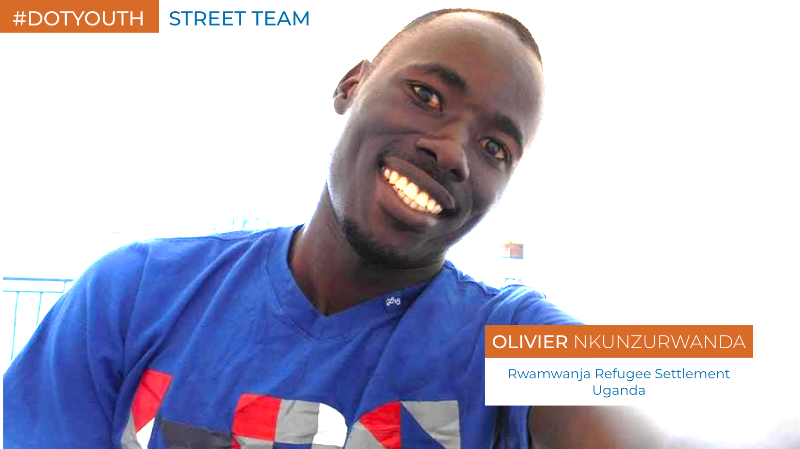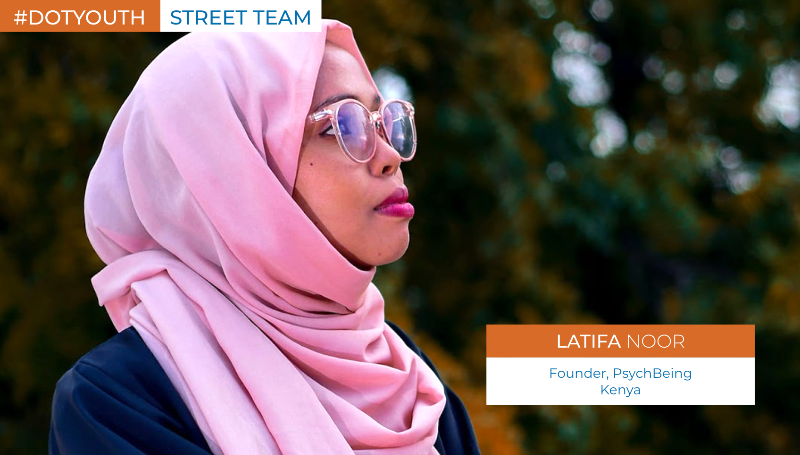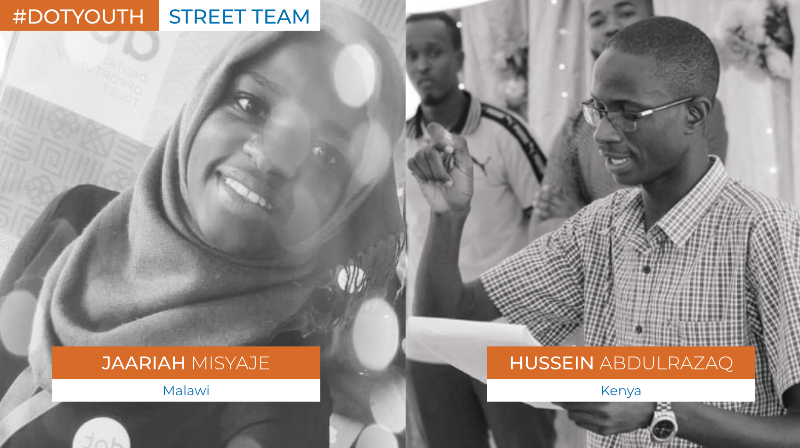Four #DOTYouth who will make you feel good about what’s possible in times of crisis
If you were able to join our webinar today, hosted in partnership with Catalyst 2030 – thank you! If you missed it, click play above to learn about how #DOTYouth are tackling COVID-19 in their communities with inspiring grassroots initiatives and social enterprises.
No time to watch? That’s ok! Read a recap of the session below – and we’ll look forward to seeing you at the next one.
If you’re inspired to support youth-led COVID-19 initiatives like the ones we’ve shared, you can donate here. We don’t ask for donations often – but if you watched the webinar you’ll know why we think this is important. ?
Here’s what we talked about during our webinar about how #DOTYouth are responding to COVID-19 with wildly impactful community projects:
You’ve been hearing this a lot: we are in unprecedented times. This week, Coronavirus cases topped 3 million. The global pandemic is altering daily life and creating urgent needs in communities around the world.
In Africa, experts are warning that fragile systems could be overwhelmed.
But, in the midst of this, youth are innovating.
Youth are identifying the challenges and needs in their communities, and moving rapidly to address them to get ahead of the pandemic as it hits the continent.
At Digital Opportunity Trust, we’re seeing inspiring and hopeful examples in our network of more than 6,000 youth.
Youth know what is most needed in their communities; they have the ability to adapt and respond quickly to an emerging crisis situation; and youth in DOT’s network have the digital skills, gender equality, and facilitation knowledge necessary to rapidly intervene where their communities need it most.
UNHCR agrees: they recommend that one of the primary tactics to combat the spread of the virus in vulnerable communities must be to engage local youth and youth networks.
We believe in the power of youth. At DOT, we’re launching the #DOTYouth Street Team: a coordinated support network for youth in Africa and the Middle East who are responding to COVID-19 with needs-based interventions.
In a time of crisis, we are astounded and inspired by the ingenuity of young people.
Learn about the #DOTYouth Street Team and how you can support youth-led COVID-19 responses.
We shared the work of four #DOTYouth who will make you feel good about what’s possible in times of crisis:

Olivier Nkunzurwanda runs the Refugee Innovation Centre in the Rwamwanja Refugee Settlement, which is home to nearly 70,000 refugees in Uganda.
Olivier founded the Refugee Innovation Centre a few years ago to create meaningful learning and community engagement opportunities for his fellow youth – the centre offers entrepreneurship and digital skills training.
Now Olivier is mobilizing his peers to make sure that as many people as possible in the Rwamwanja Refugee Settlement know about COVID-19 and how to protect themselves.
He’s doing this by mobilizing a team of youth who are going door-to-door (following safe distancing practices) to sign residents up to Whatsapp groups where they can get immediate information, and creating very catchy songs and videos targeting children and youth in the camp to promote good hygiene practices and awareness of COVID-19.
In just four weeks, Olivier and his team have reached over 4,200 community members in the settlement and 450 households. Wow.
The work Olivier is doing is critical because he’s establishing important community communication pathways that will be essential for prevention, recovery and resilience. Youth-led outreach like what Olivier is doing is exactly what UNHCR and IOM are recommending: one of the primary ways to combat the spread of the virus in camp settings is to engage local youth and youth groups as trusted communication channels.

Latifa Noor is the founder of a social enterprise called PsychBeing, which uses technology to address mental health issues in Kenya and connect people to essential mental health services.
Through PsychBeing, Latifa has launched a community COVID-19 response that is engaging professional coaches, psychologists, and experts in social media outreach to ensure that communities are getting accurate and important information about how to cope. Latifa and her team are also addressing important COVID-related mental health issues like how to vent frustration and anger, and how to deal with family challenges using live video chats on social media.
Latifa’s work is important: research is already showing that the pandemic is affecting mental health at a population level, with widespread increased anxiety, feelings of isolation, and concerns about access to mental healthcare.
Social isolation, employment uncertainty, and the virus itself will continue to shock the health and wellbeing of people around the world. In a country like Kenya, where mental health support is often stigmatized and challenging to find, Latifa is providing a critical lifeline for her community.

Jaariah Misyajeis a young woman from Malawi, and Hussein Abdulrazaq is a young man in Kenya – and both of them are working on COVID-19 relief efforts in prisons.
Jaariah and Hussein have never met before, but they’re a great example of the power of peer networks and how the #DOTYouth Street Team is bringing innovators together to make their initaitves stronger and more impactful.
Jaariah’s work is focused on the Zomba Maximum Prison in Malawi. She’s mobilized members of her community to help distribute protective materials like masks and gloves, and supplies like soap, water, and sanitizers.
Zomba Prison has exceeded its capacity by 200%, and is already a hotspot for the rapid spread of infectious disease. Even without COVID-19, the prison sees a 5% annual death rate.
Without preventative measures, the spread of Coronavirus in the prison could be a humanitarian disaster.
The work Jaariah is doing is essential, and in an area with little social infrastructure, her work bringing a community together to make positive change is transformative.
Hussein is also working to provide supplies and information to a prison in his own community of Mombasa, Kenya. As a part of his Global Youth Projects organization, he’s sharing information about signs and symptoms of COVID-19, what to do if you suspect you have it, and how to take precautions.
Kenya has taken steps to release large numbers of prisoners to decongest facilities and allow for better social distancing, but there is still a lack of adequate information being shared with prisoners.
Prisoner advocates around the world have been raising the alarm about the crisis that will unfold in prisons where distancing is impossible, and sanitary supplies are limited or completely unavailable.
Jaariah and Hussein are each working on their initiatives in separate countries, but through the #DOTYouth Street Team we’re connecting them to each other, as well as to other youth who are targeting marginalized communities. This peer support means that they can share ideas and motivate each other while tackling a very complicated systemic issue.
We talked about ways you can support Olivier, Latifa, Jaariah, Hussein, and other members of the#DOTYouth Street Team:

#DOTYouth are located in some of the most under-served and at-risk locations on the globe, operating among some of the most vulnerable populations. They have the skills, knowledge, and networks to make change. They are trusted channels into their communities.
We need to support their important work.
And if you want to and can do more, please get in touch:
Anne Patterson
Director, Communications and Digital Engagement
apatterson@dotrust.org
Digital Opportunity Trust’s #DOTYouth Street Team is a COVID-19 rapid response initiative supported by the Mastercard Foundation and the Government of Canada through Global Affairs Canada.
